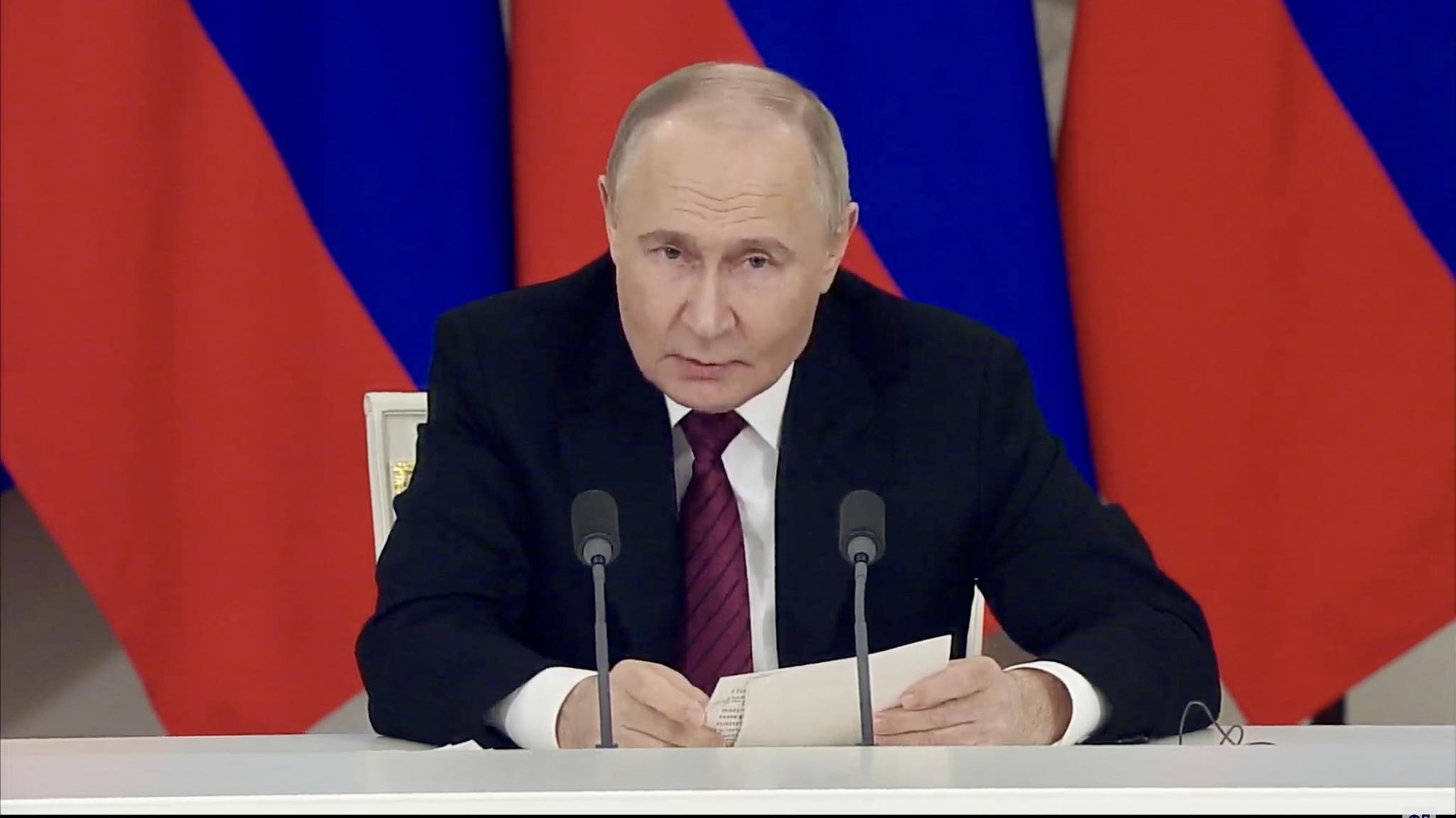Putin Rejects Ceasefire – Will Trump Again Take the Bait?

Vladimir Putin has rejected a European-led ultimatum for an unconditional 30-day ceasefire with Ukraine, escalating tensions as European leaders, alongside the United States, threatened harsher sanctions and increased military aid to Kyiv.
The proposal, backed by leaders including UK Prime Minister Keir Starmer, French President Emmanuel Macron, German Chancellor Friedrich Merz, and Polish Prime Minister Donald Tusk, demanded Putin agree to the truce by Monday, May 12, to pave the way for peace negotiations. Instead, Putin countered with a suggestion for a “resumption of talks in Istanbul” on May 15, without a ceasefire, a move Macron dismissed as “a first step, but not enough,” accusing Putin of seeking to “buy time.”
The suggestion for a return to Istanbul implies a resumption of Russia’s 2022 failed attempt in that city to force Ukraine into what amounted to a total surrender. Previous Istanbul talks centered around Ukraine essentially deleting its military, handing Russia political control of the entire country while granting physical control of around 30% of Ukraine’s land.
The European leaders, who met in Kyiv on May 10, were unified in their stance: an unconditional ceasefire means no preconditions, rejecting Putin’s insistence on halting Western weapons deliveries to Ukraine. Starmer emphasized that if Putin turned his back on peace, the West, in coordination with U.S. President Donald Trump, would “ramp up sanctions” and bolster Ukraine’s defense to pressure Russia back to the negotiating table.
Trump’s history with the Russia-Ukraine war is a mixed bag. On April 26, 2025, he claimed Russia and Ukraine were “very close to a deal” following talks between his envoy Steve Witkoff and Putin in Moscow, a meeting Ukraine was notably absent from.
Trump described it as a “good day” of negotiations, while the Kremlin called the discussions “constructive.” Yet, Trump has also blamed Ukraine for starting the war, telling Time magazine that Kyiv’s NATO aspirations were the trigger—an assertion that aligns disturbingly with Putin’s rhetoric.
This has fueled skepticism about Trump’s commitment to Ukraine’s sovereignty, especially as he has previously pushed Kyiv to accept territorial concessions to end the conflict.
The current standoff echoes the failed 2022 Istanbul agreements, where Russia demanded Ukrainian neutrality, military downsizing, and control over occupied territories like the Donetsk and Luhansk regions.
Those talks, mediated in part by former German Chancellor Gerhard Schröder, collapsed when a planned meeting between Putin and Ukrainian President Volodymyr Zelenskyy never materialized.
Critics, including Ukrainian analyst Vladimir Kravchenko, warn that a “Stambul-2” deal could “kill Ukraine” by stripping its military potential and national identity, a concern shared by European leaders wary of Putin’s long-term intentions.
Macron’s remarks in Przemyśl, Poland, after returning from Kyiv, underscored the West’s frustration with Putin’s tactics. Meanwhile, Zelenskyy has signaled readiness for a ceasefire, but only if it’s unconditional—a position Putin has consistently rejected. With Trump’s administration endorsing the 30-day truce as a step toward sustainable peace, the question looms: will Trump, known for his unpredictable foreign policy, again take Putin’s bait and push Ukraine into a deal that compromises its future?
As sanctions loom and military aid to Ukraine intensifies, the coming days will test the West’s unity—and Trump’s resolve